Introduction
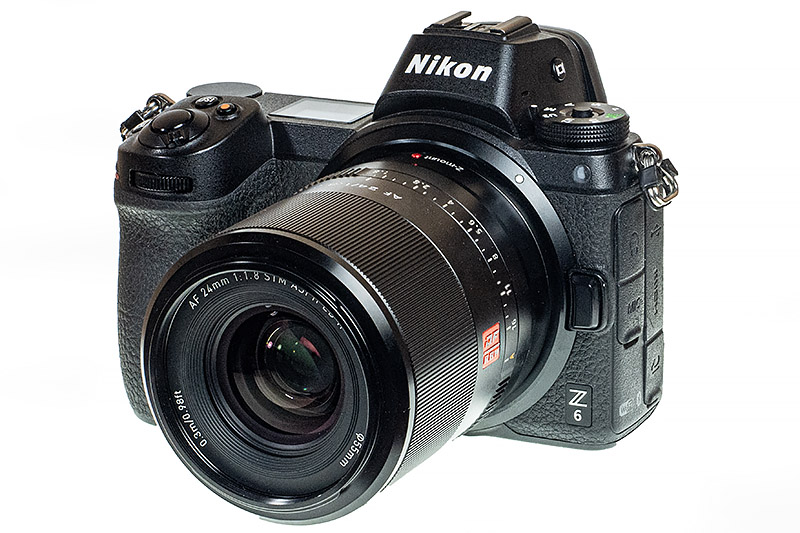
Viltrox AF 24/1.8 Z, is the only AF prime 24mm lens for Nikon Z cameras besides the Nikon Nikkor Z 24/1.8 S (Also available with Sony FE mount). The full name is “Viltrox AF 24mm 1:1.8 STM ASPH ED IF for Nikon Z“. 24mm on a full frame camera is quite wide at the verge of ultra-wide angle, which can create dramatic images but at the same time it is not so wide that it makes composing images difficult. It is great for landscape photography, but due to its f/1.8 wide aperture, it can also be easily used indoors or in other low-light situations. It costs less than half as much as the Nikon 24mm lens, which makes it a very attractive alternative, but is it good enough? Let’s find out!
Sample Images

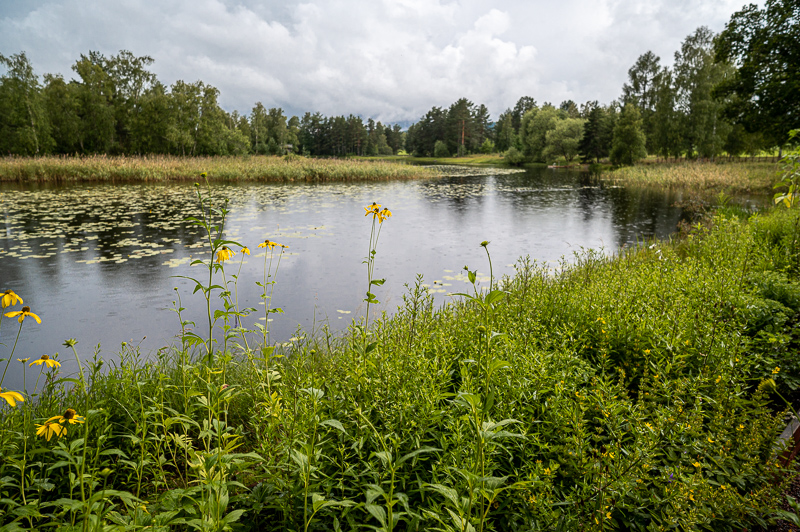
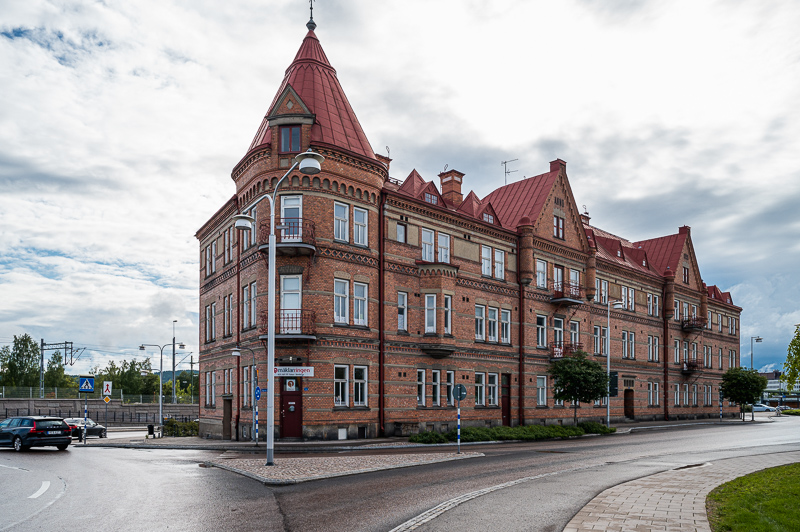
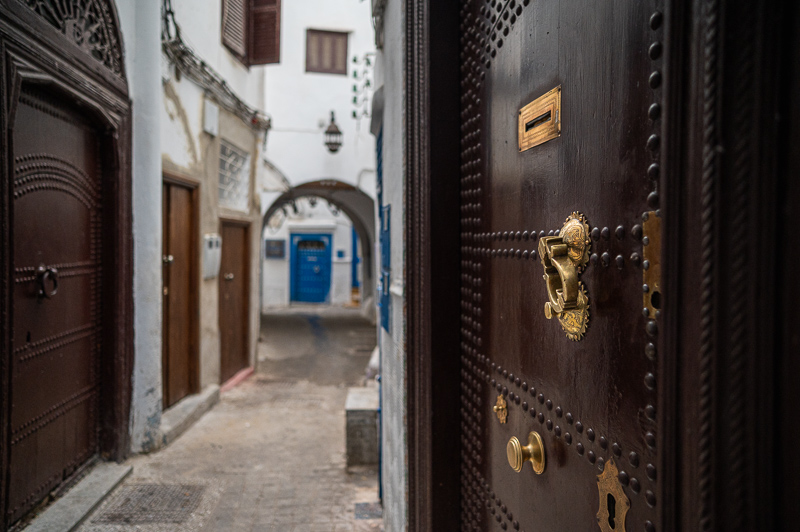
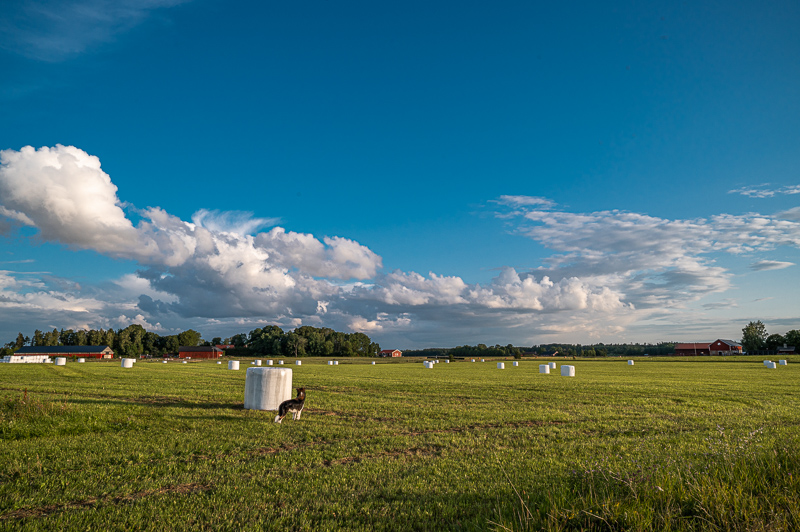

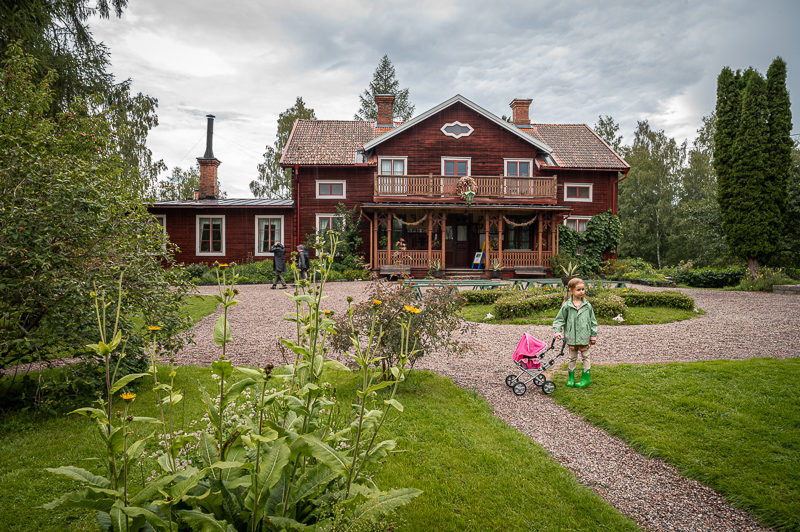

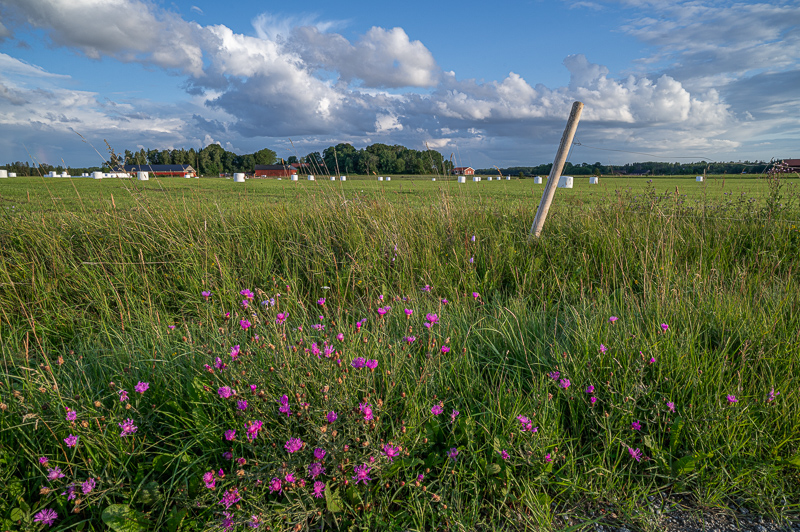

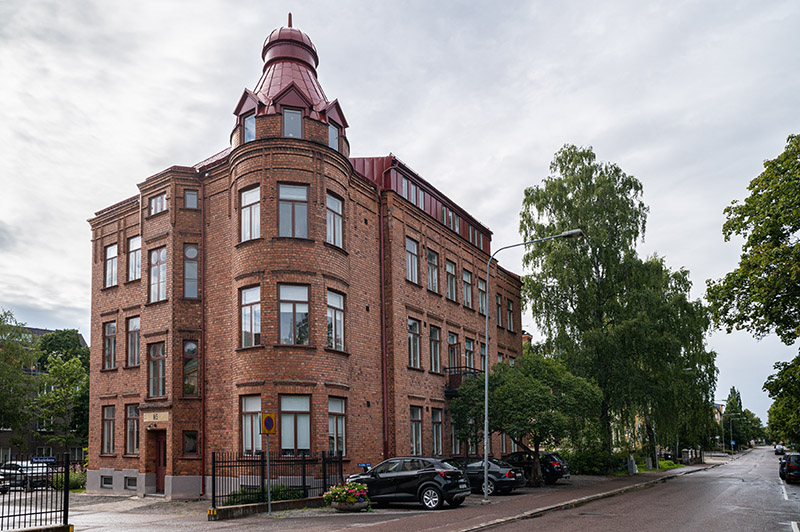
Most of the sample images in this review and many more can be found in higher resolution here.
Specifications
Focal Length: 24mm
Aperture Range: f/1.8 – f/16
Number of Aperture Blades: 9
Min Focus: 0.3 m
Filter Size: 55 mm
Lens Mount: Nikon Z (and Sony FE)
Weight: 370 g
Size (D x L): 70 x 87 mm
Elements/Group: 11/9
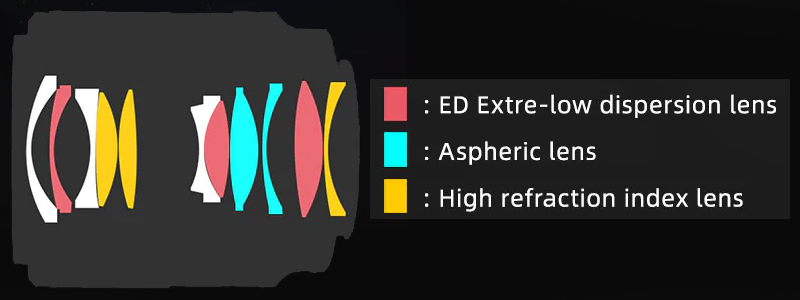
Disclosure
This reviewed lens was kindly provided by Viltrox for testing purposes but this is an independent review.
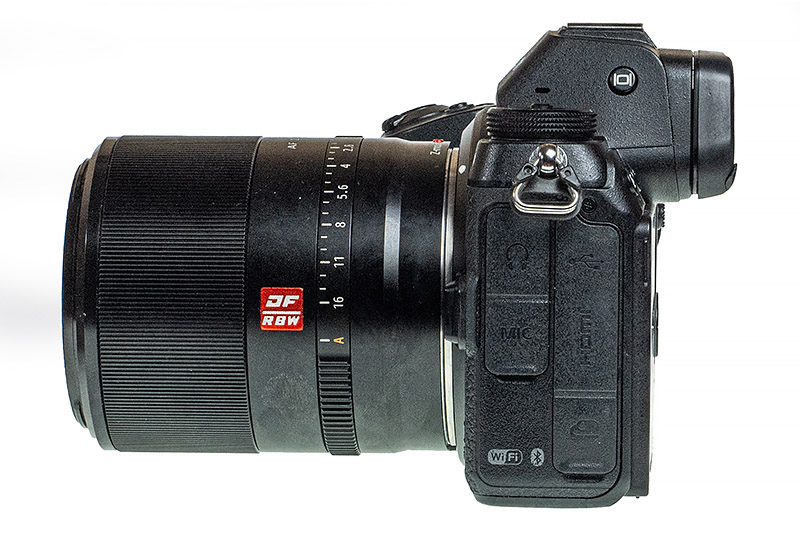
You can order this lens at the manufacturer’s link here and you will get an 8% discount or use the discount coupon code MARTINMH and get 8% discount on any product you buy there.
Handling
The build quality seems to be very good in a small robust package. The lens is built of metal and has two rings on its barrel: a large ring for focus override and an aperture ring. The aperture ring is clickless, which is good for video. It turns easily, but it feels harsh to turn it as it makes a sound like you are rubbing two plastic surfaces against each other when you turn it. The ring also has an A for Auto position, at which the aperture can be set via the camera. The focus ring is wide and very smooth and is programmable from the camera to be set as focus ring, aperture ring, exposure compensation ring, or ISO sensitivity ring.
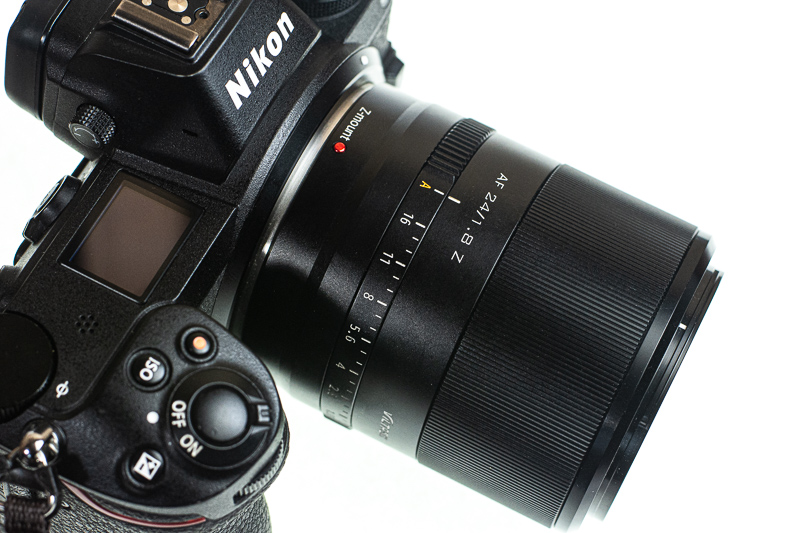
Oddly enough, there is no AF-MF button on the lens, which I found very annoying. If you want to set the lens to MF you have to dig deep in your camera menu system and do it there, and when you want to set i back to AF, you have to do the digging process again. The AF is focus by wire, like Nikon’s Z lenses. There is a plastic lens hood included in the box, but the lens hood does not feel as high quality as the lens itself. This lens is both smaller and lighter than Nikon’s 24mm f/1.8, but has no weather sealing. There is a type C USB port on the lens mount to update its firmware.
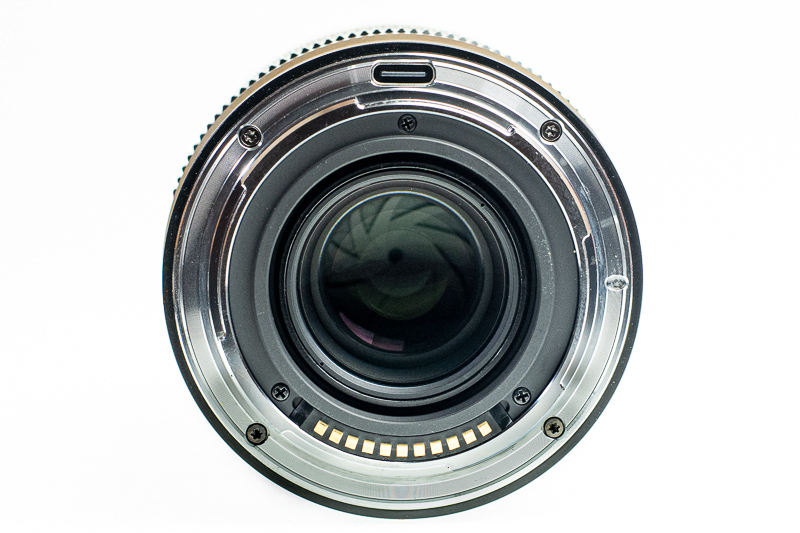
Optical Features
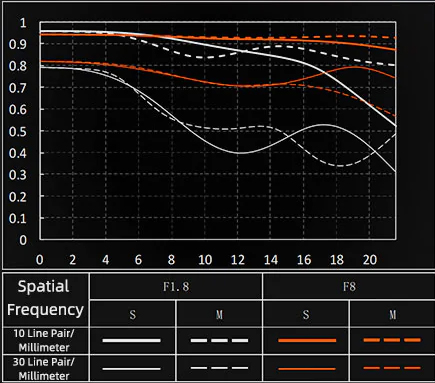
The MTF chart looks promising in the center of the frame but is less convincing when we move away from the center. Let’s check how it is in real life.
Sharpness (Infinity)
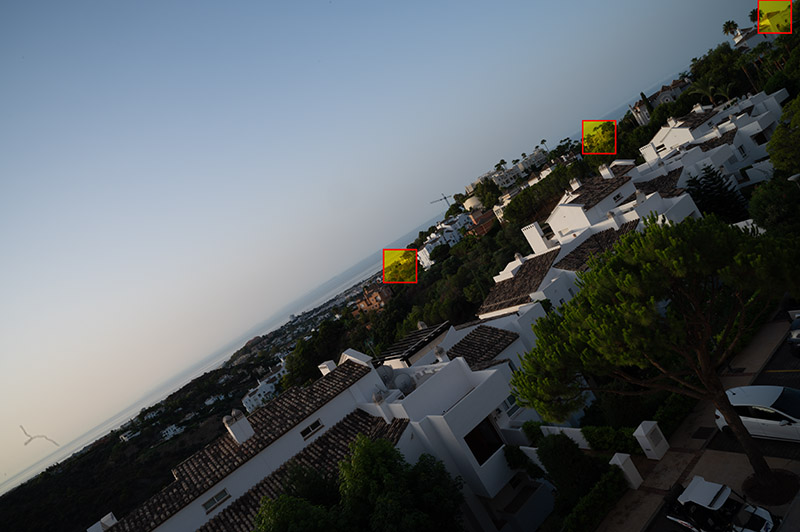
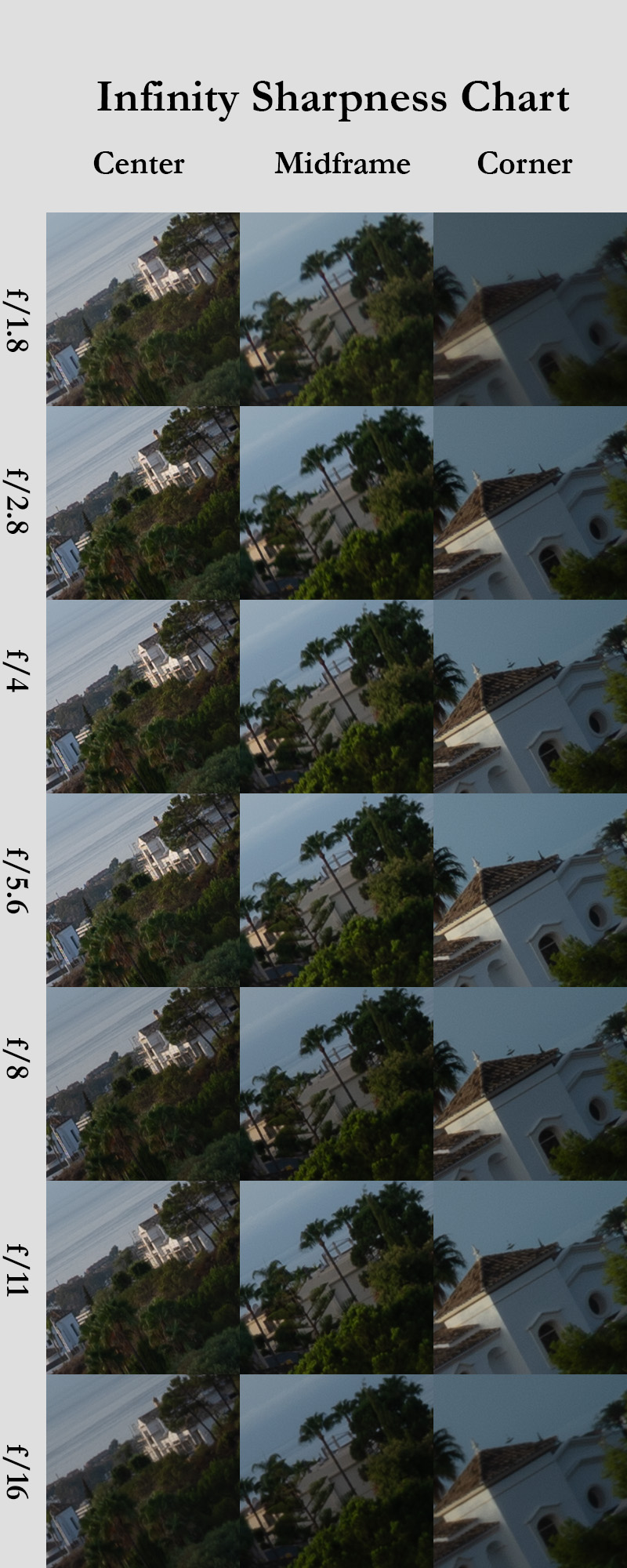
F/1.8: Good sharpness in the center, midframe and corner are soft, the corner also lacks contrast and is much darker.
F/2.8: Center sharpness and contrast is very good now, corner improved a lot to a good level, both in sharpness and contrast but the midframe, while the contrast is better, the sharpness does not seem to improve (sign of field curvature)
f/4: Center sharpness and conrast are excellent, midframe is better but not as good as the corner, which is at a very good level
f/5.6: Excellent center, very good corner and the midframe is at a good level at last but worse than the corner
f/8: more or less the same as f/5.6
f/11-f/16: The diffraction effect hits and decreases the sharpness a little
Sharpness (Portrait)
Let’s look at the portrait distance (for a 24mm lens about 50-60 cm) at the very center, center’s inner periphery (1/3 rule intersection) and center’s outer periphery (points of interest for portraits).
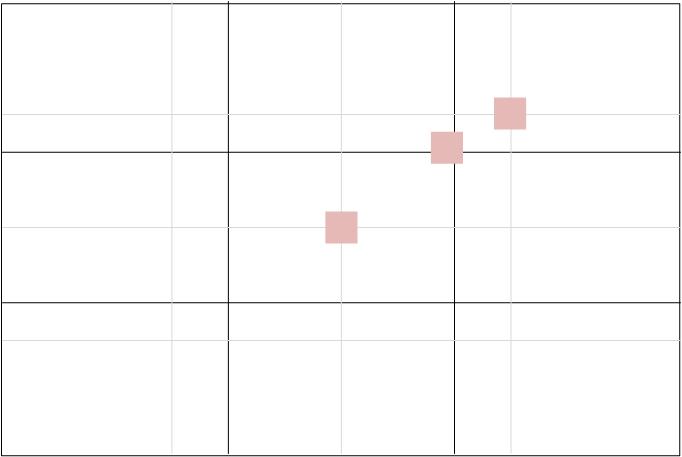
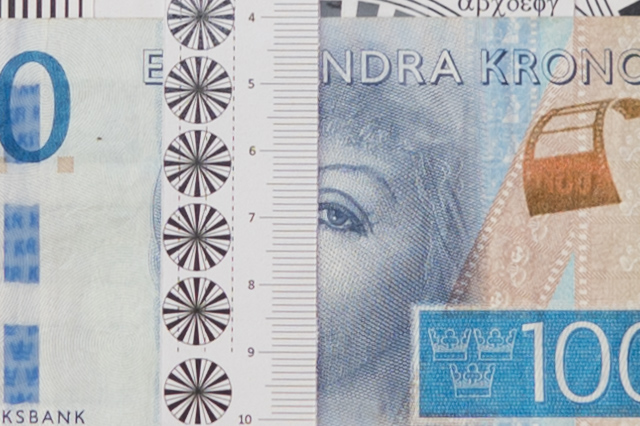
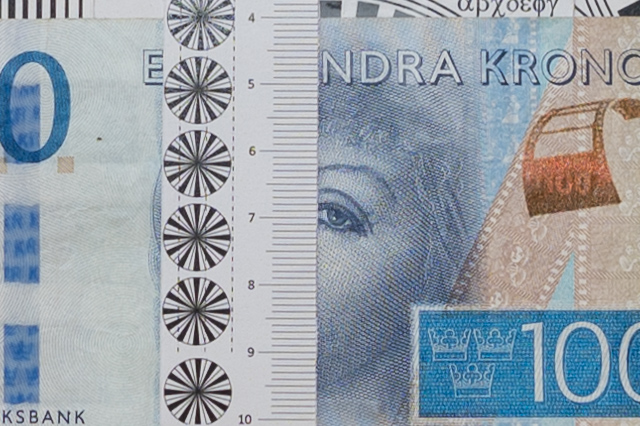
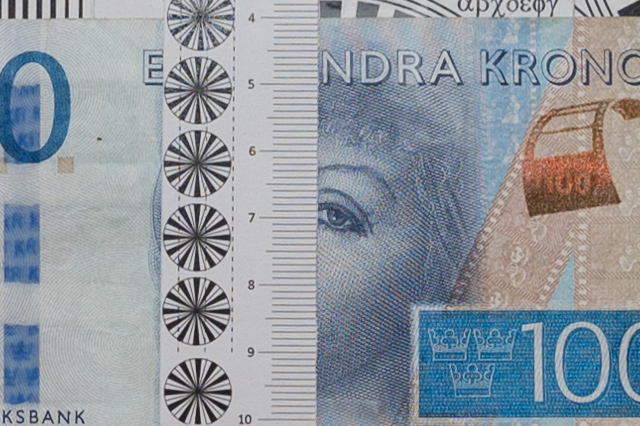

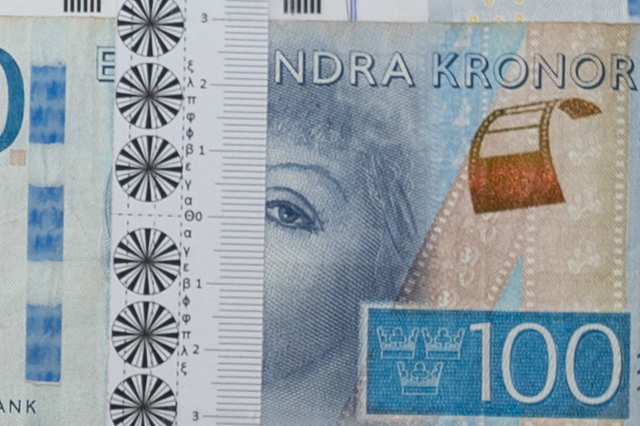
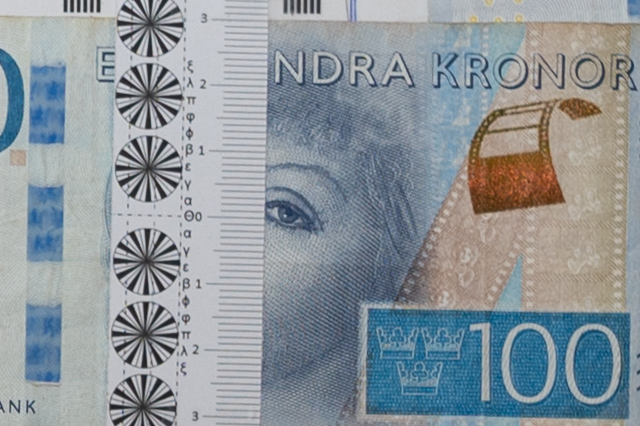
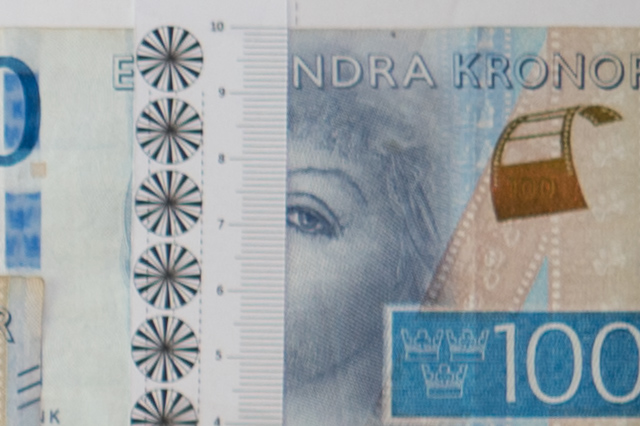
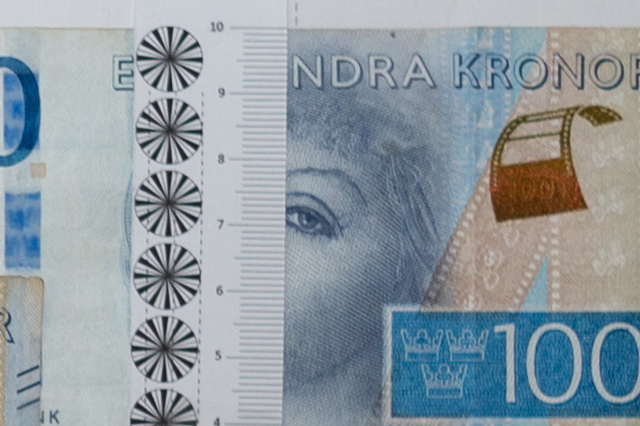
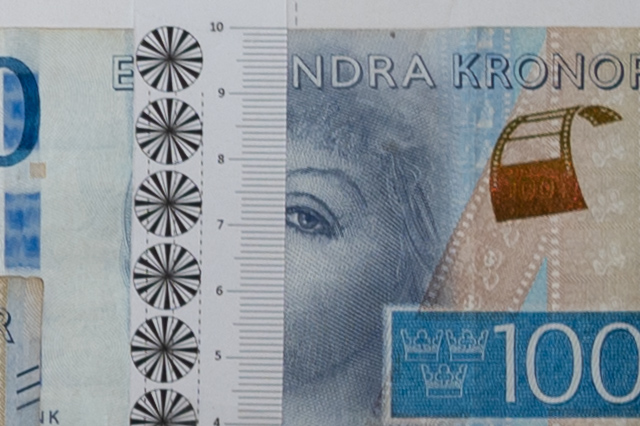
The center has very good sharpness and good contrast at f/1.8, contrast gets better at 2.8 and 4.
The center Inner periphery is also good at f/1.8 but not at the same level as the center. Stopping down a little makes wonder here.
The center outer periphery is weak at 1.8. At 2.8 you get better contrast but the sharpness is not good yet, f/4 makes a small improvement.
Sharpness (Close-up)
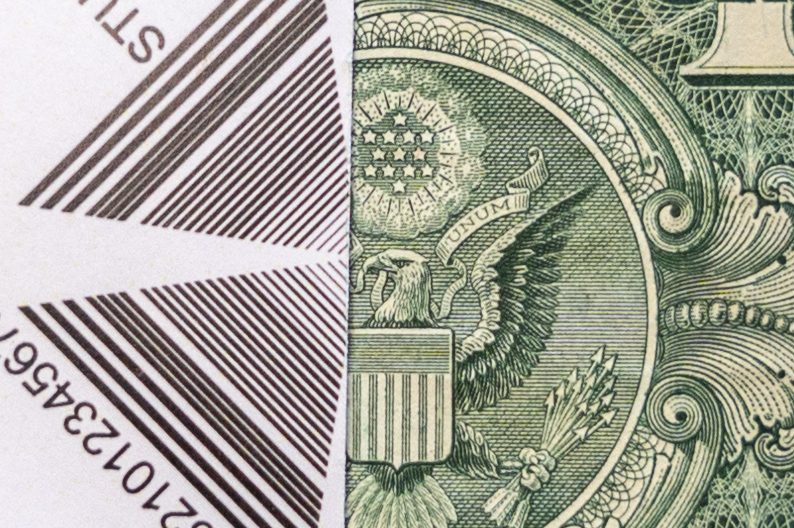
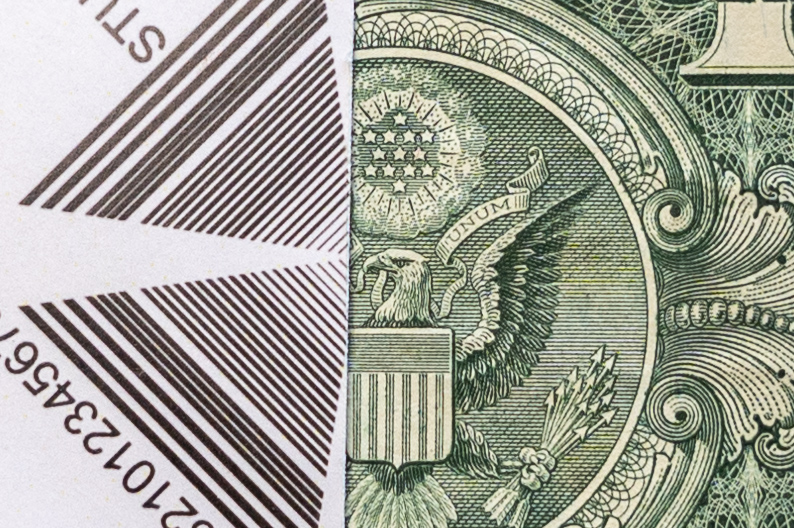

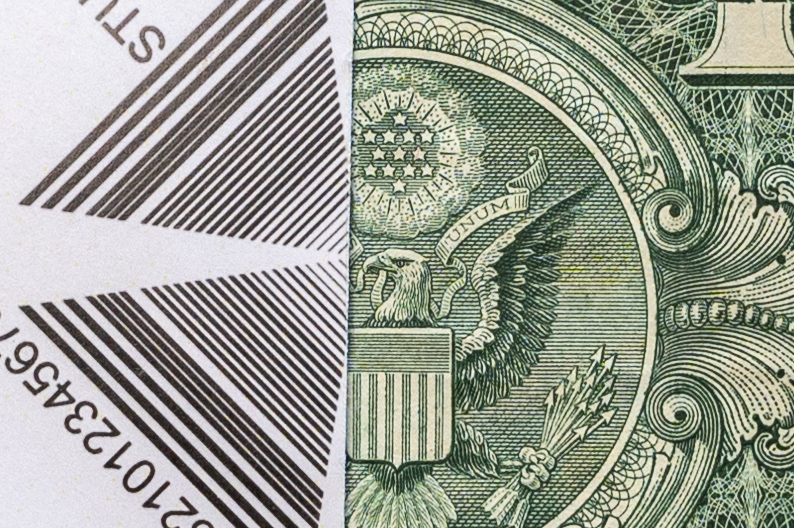
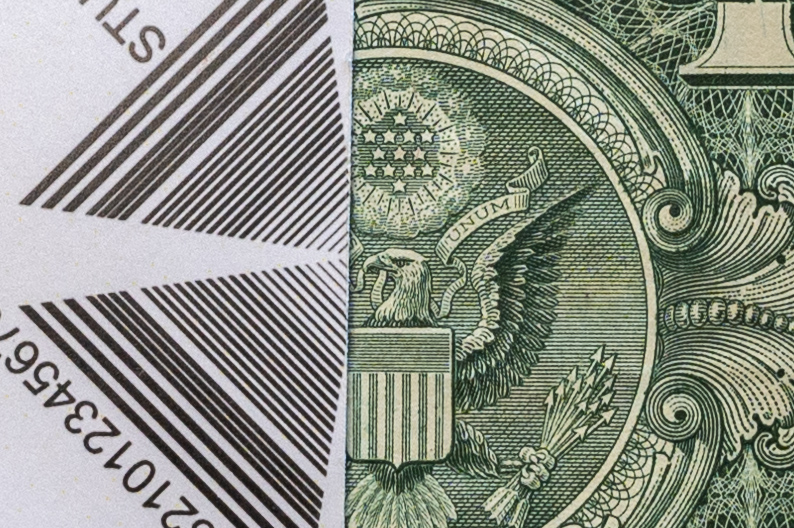


It seems that Viltrox has done a good job with the floating elements, as the close-up sharpness is very good near the minimum focus distance. The sharpness is excellent from f/1.8 wide open through f/8, with a little dip at f/11 and even more decrease in sharpness at f/16 due to diffraction.
Focus Shift
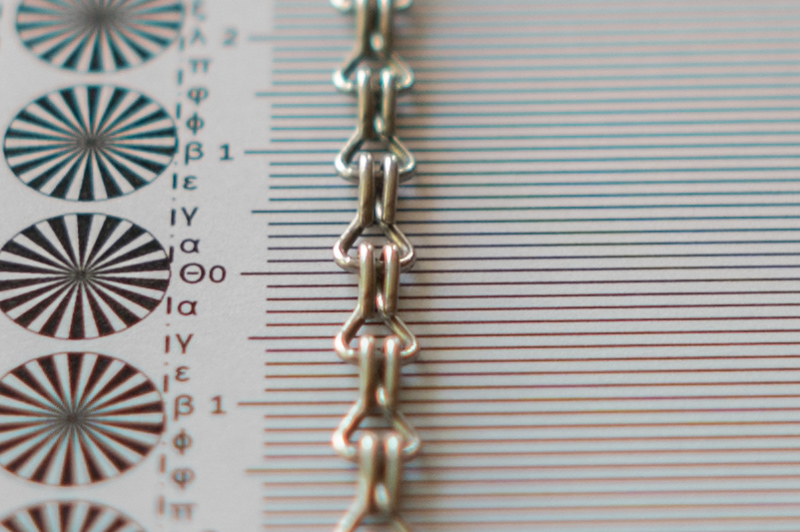
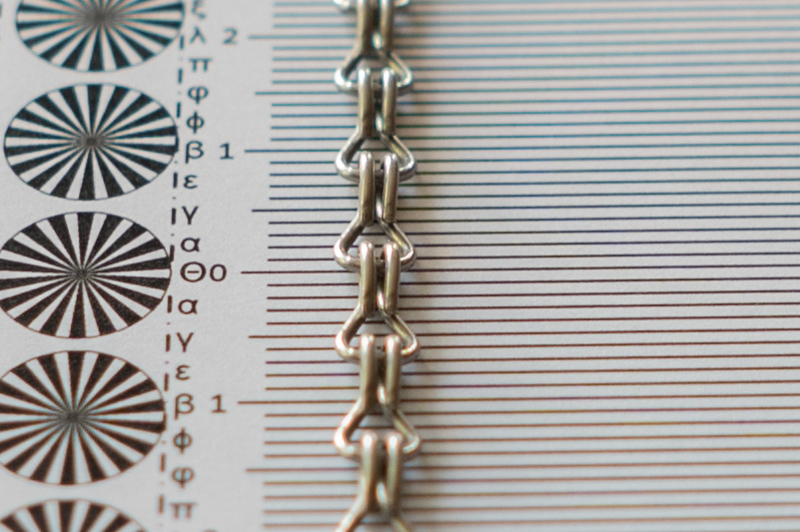
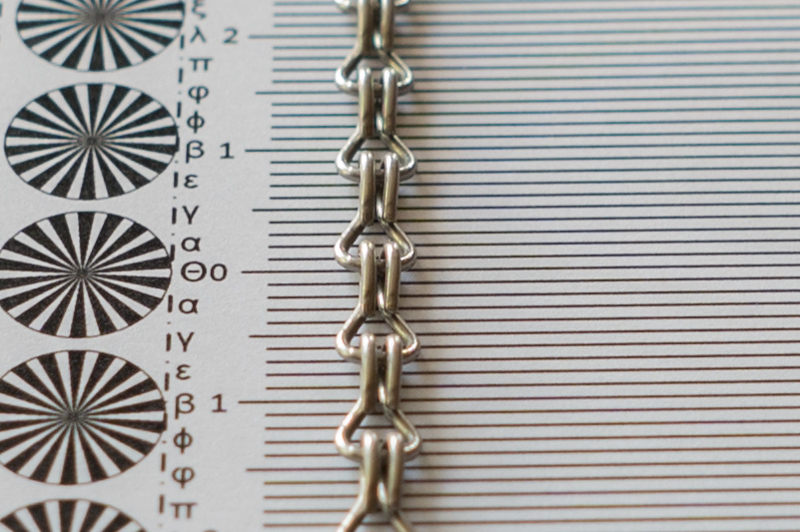
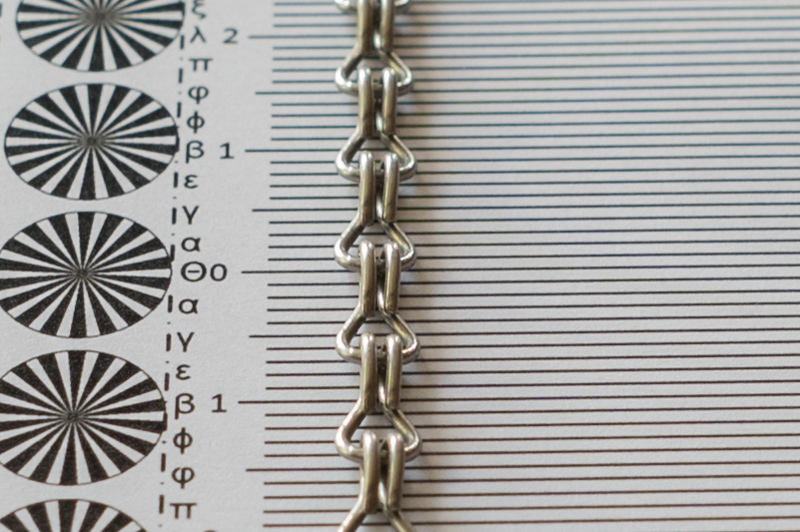
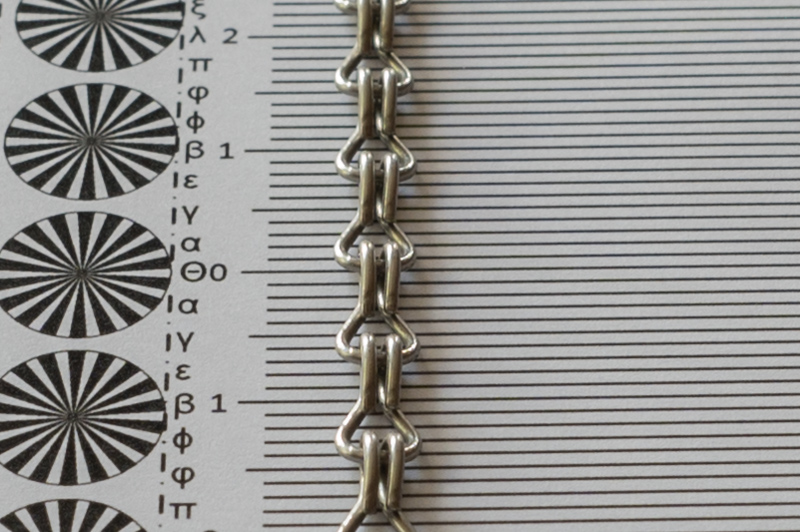
The good news here is that the Viltrox AF 24mm f/1.8 Z does not show any focus shift.
Chromatic Aberrations
The less good news is that this lens suffers from chromatic aberrations. The clearly visible LoCA as purple and green color fringing at f/1.8 is quite pronounced at wider apertures. Stopping down helps slowly and reduces the LoCA gradually. Most of it is gone by f/5.6 but to get rid of it completely you have to stop down to f/8. To see the effect at different apertures, look at the images in the previous section (Focus Shift). Here is a real life example:
But that is not all. There is also lateral chromatic aberration, which luckily can be fixed in post. The following image was taken at f/7.1, where almost all LoCA should be gone, but the LaCA has manifested itself along the branches in the upper left corner.
Lens Distortion
This is possibly the weakest point of the Viltrox 24/1.8 Z. It suffers from lens distortion that is not easily fixed in camera or in post. You need to be extra cautious if you want to use this lens for architectural photography, otherwise it might not pose an issue.
I have included several architectural photographs in the sample images.


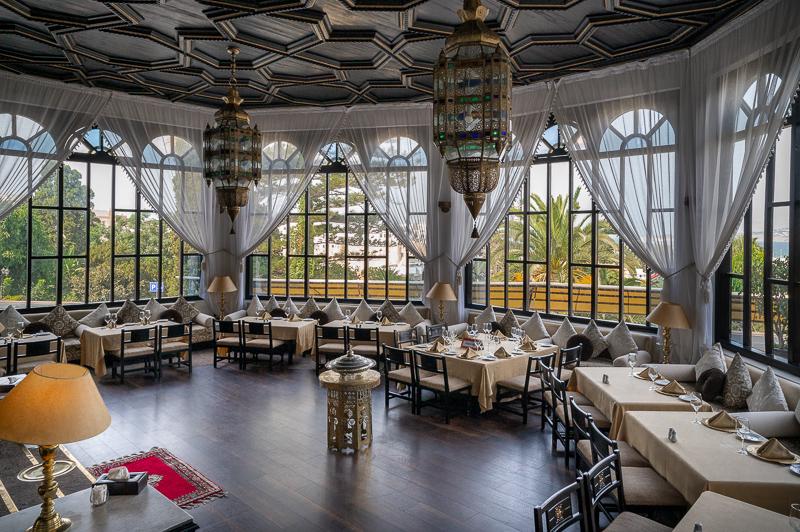
Vignetting

The vignetting is strong at f/1.8, about -2.7 EV. It improves a lot by stopping down to -1.7 EV at f/2.8. It is about -1.5 EV at f/4, and about -1.3 EV at f/5.6. In-camera vignetting control was turned off during this test and lens profile was not used in Lightroom.
If in-camera vegnetting control is on, the vignetting is about -1 EV at f/1.8. if Lightroom lens profile is also used in addition to that, the vignetting is about -0.5 EV at f/1.8.
Flare Resistance
You can actually make any lens look bad in this section if you try hard enough. The Viltrox AF 24/1.8 Z is no exception and, like many other lenses, suffers from veiling and ghosting flare when you challenge it with a strong light point near or in the frame. Not necessarily in all cases, though. In many situations, you can avoid the flares by changing your position or aperture setting slightly; look at the last image in this series and compare it to the one just before it!
Coma
The Viltrox 25/1.8 Z shows some coma at f/1.8 in the corners of the frame, but closing the aperture only one stop to f/2.8 fixes the issue.
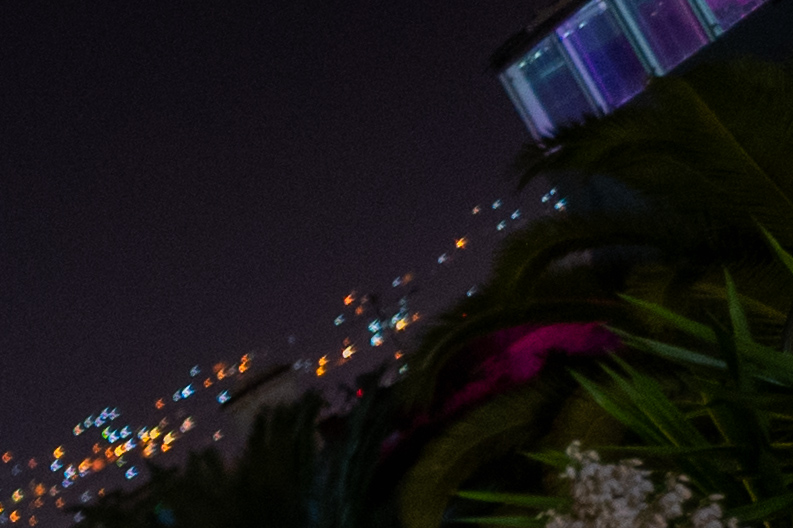
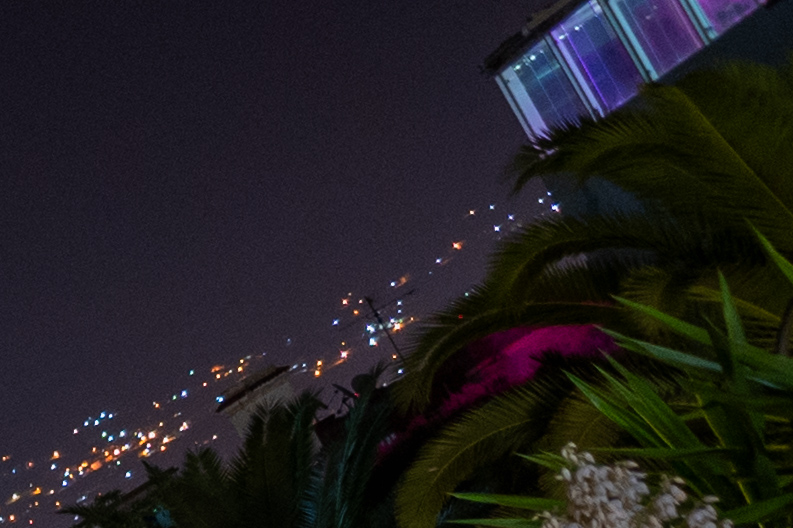
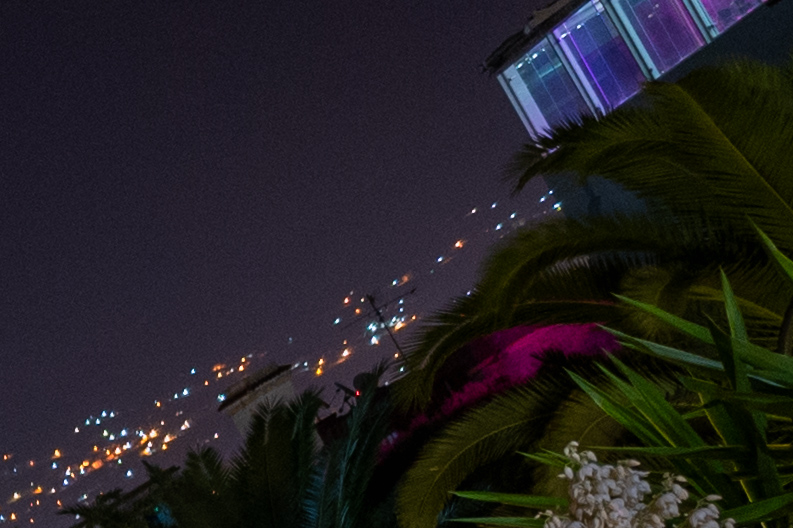
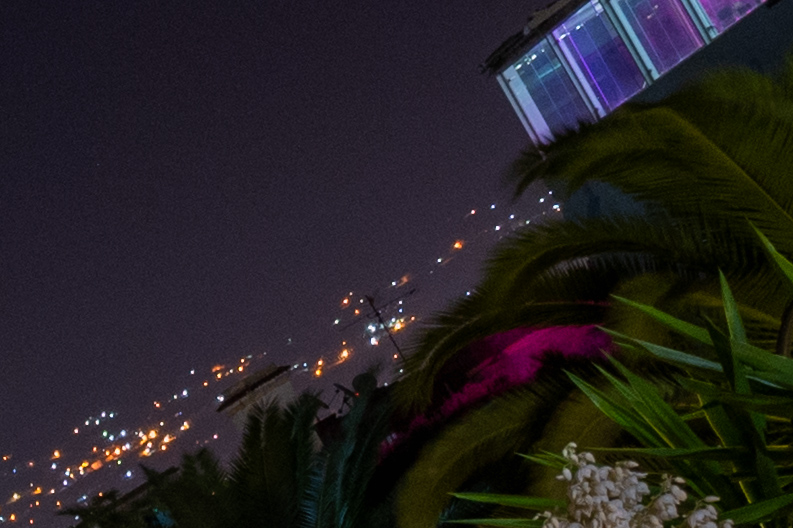

Sunstars
Sunstars like or dislike is a subjective matter. You can get some fuzzy sunstars with 18 unequal rays from f/4. They become more distinct from f/8, at f11 and f/16 the rays are quite distinct. Look at the images below and see if you like them.

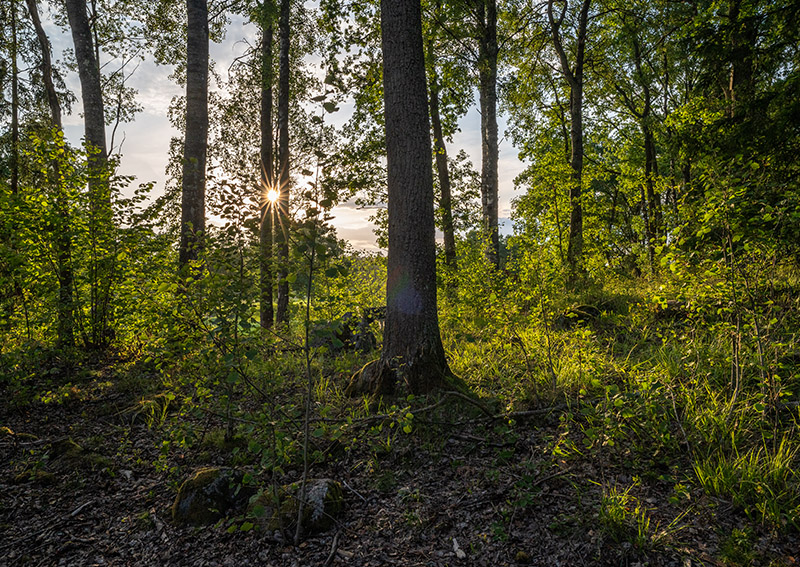




Focus Breathing
Good news for video makers again; the Viltrox 24/1.8 Z does not show any focus breathing that is worth mentioning. Nice.

Bokeh
Normally, a 24mm lens is not used mainly for creating images with dreamy bokeh, and you should not expect that either, especially if there are aspherical elements in the lens; in this case, two of them. On the other hand, if somebody buys a large aperture 24mm instead of using the 24mm focal length of a standard zoom, does it partially for creating background blur. Thanks to the relatively large aperture of this lens, you can get decent background blur if you take photos with large apertures at closer distances. However, the beauty of the bokeh is subjective, and this lens’s bokeh may not appeal to everyone’s taste. It creates some busy double-edged background blur in light or contrasty conditions. Also, the lateral chromatic aberration, coma and the field curvature have a less pleasing effect on the bokeh, for my taste anyways. All in all, while it’s OK for a 24mm lens, it is not the kind of bokeh or background blur that most people would appreciate, except at very close distances and with dark or muted colored backgrounds.
I try to demonstrate it by uploading a few samples here and a couple more in the sample images elsewhere in this review. Besides pictures in this section, almost half of all sample images, elsewhere in this review, are taken at wide apertures. Have a look and see how you like them.
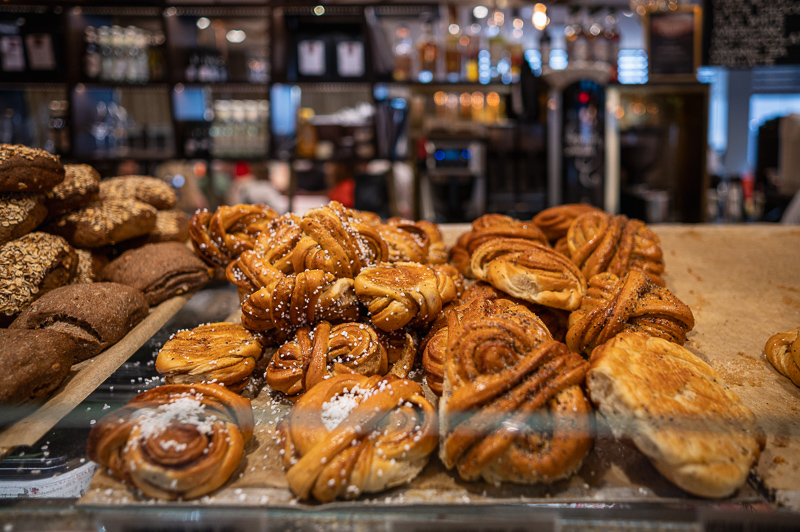
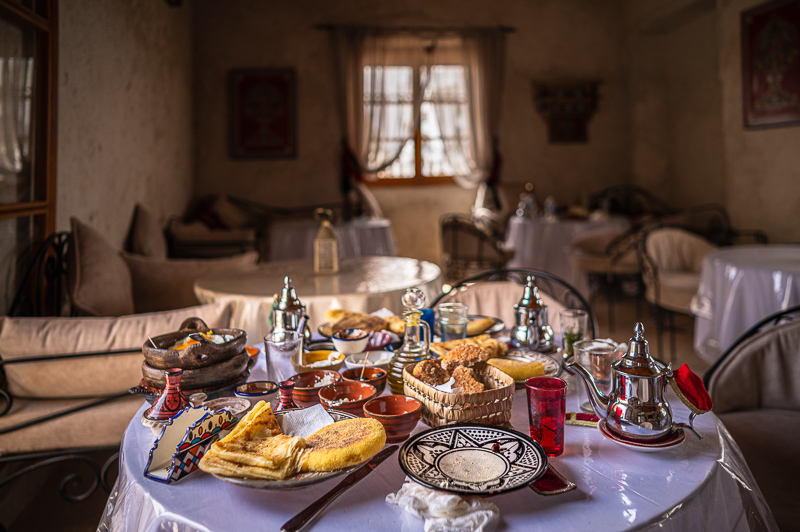
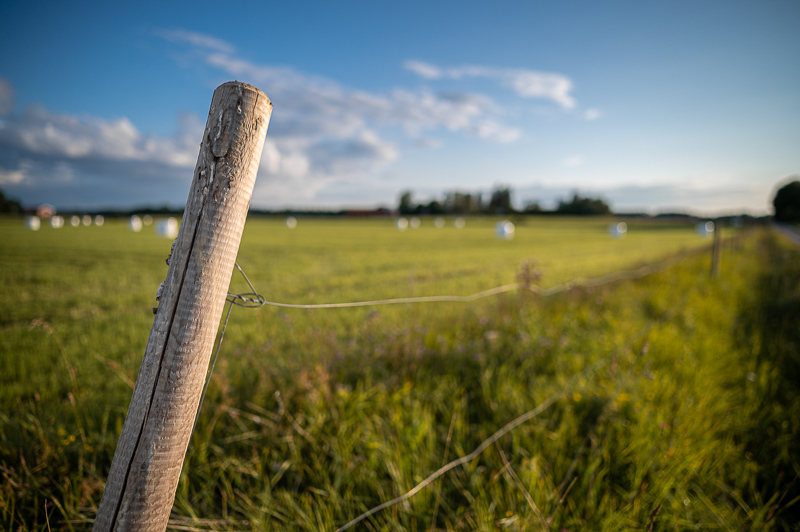

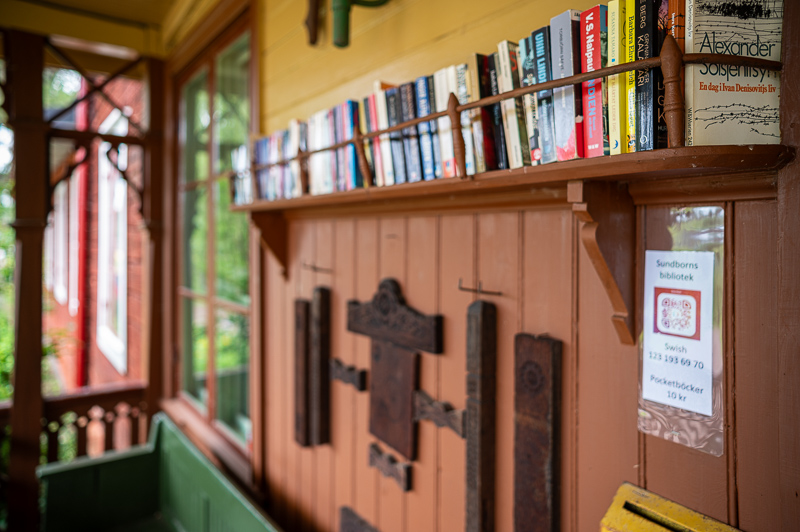
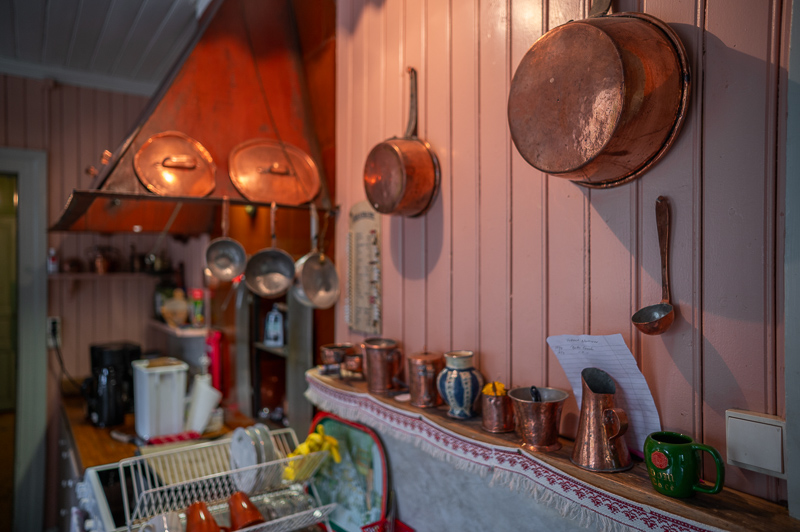

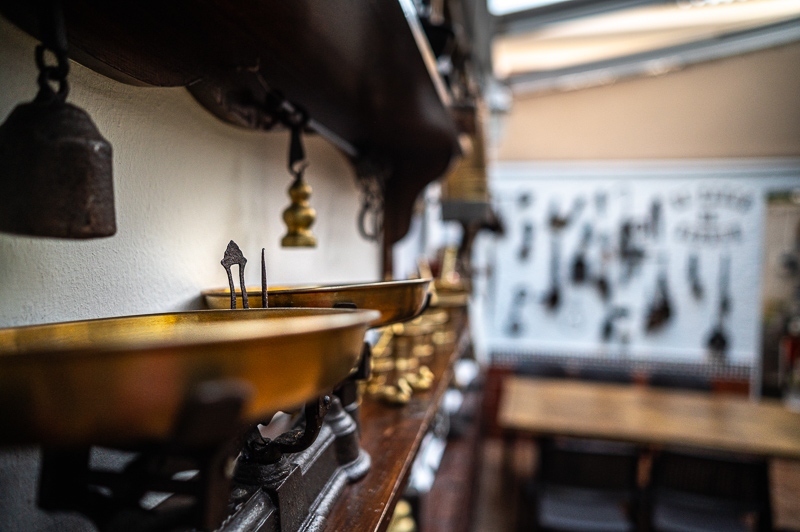
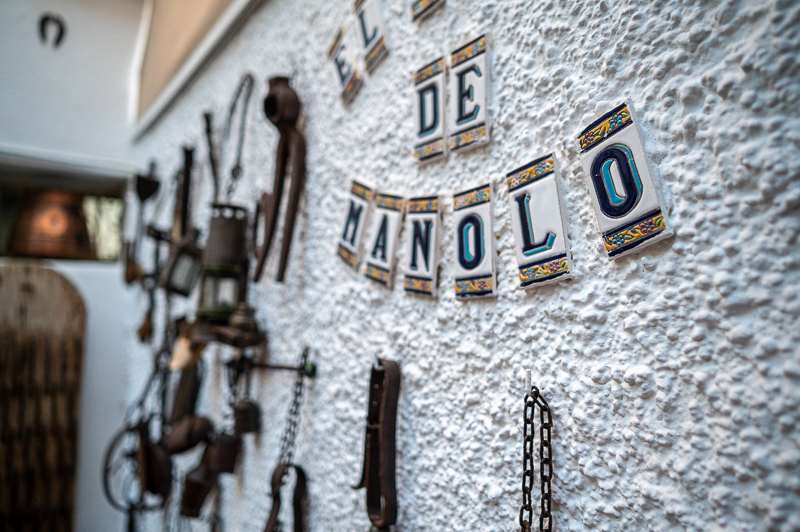

Bokeh Balls
Here we have other issues with the bokeh. The bokeh balls have several characteristic features that may not fall into everybody’s taste: clearly visible onion rings, a typical effect of aspherical lens elements; polygonal shapes, even at wide open aperture; green edge fringing all over the frame from the LoCA, which gets more accentuated towards the corners and stopped down due to LaCA; and lastly, the mechanical vignetting.
The polygonal shape of the bokeh balls at wide open aperture is definitely a result of the aperture blades that are not completely retracted into the lens barrel when the aperture is wide open at f/1.8. As a matter of fact it is one of the most extreme cases of this mechanical design, which naturally results in the polygon shapes wide open.
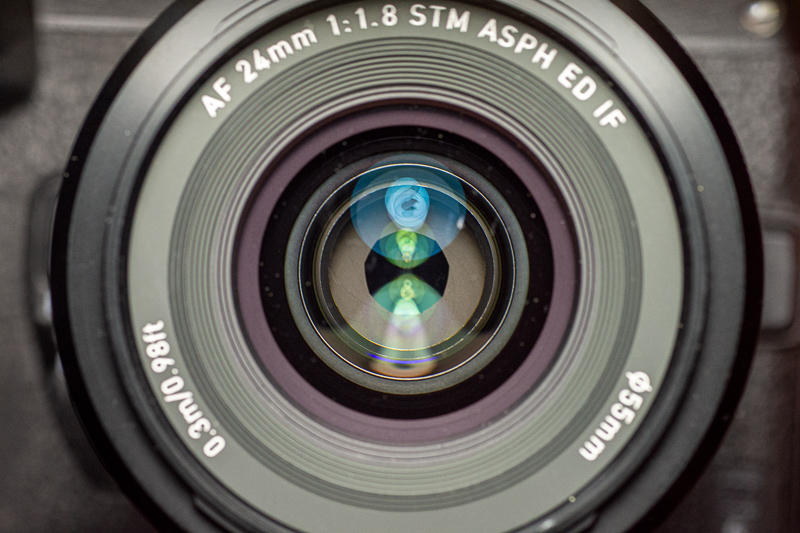
Conclusion
| I LIKE | AVERAGE | I DON’T LIKE |
| Price Size No focus shift No focus breathing Contrast Center sharpness Consistent and accurate AF Programmable AF ring |
Overall Sharpness Chromatic aberrations background blur No weather sealing AF speed Flare resistance Coma |
Soft mid-frame up to f/5.6 Distortion Vignetting No AF-MF button Bokeh |
When Viltrox sent this lens, they mentioned that this lens is primarily a video lens, and I see why now: de-clicked aperture ring, no focus breathing, and excellent center sharpness. But it is not only a video lens; yes, it has its flaws, e.g. not having the smoothest bokeh, vignetting, distortions, across the frame sharpness from wide open, etc., but in real life you can create excellent pictures with it. Most of the flaws can be avoided if you know about them or corrected in post. Have a look at the sample images and judge for yourself! Also, as the only Z mount AF alternative to Nikon’s own 24/1.8 with a price tag that is less than 40% of Nikon’s, it is a strong candidate for anybody who likes a fast 24mm, especially if you are on a budget. It is not in the same league as Nikon’s own Nikkor 24mm f/1.8, but after all, you can buy this lens plus at least another new lens at the same price as Nikon’s 24mm f/1.8. So, I think it is a very good value lens for a full frame camera, as 24mm focal length in combination with its low light capabilities makes it a very versatile lens at a very attractive price.
If you are interested in buying this lens or any of the lenses in the Alternatives section, you can support our efforts by using the links below or given under each lens. It won’t cost you a penny and it won’t affect the price, but it will help us a little.
Viltrox 24mm f/1.8 Z
Buy it from manufacturer’s store! You can even get a discount there on any product with the coupon code “MARTINMH”.
Buy new: Viltrox Store, amazon.com, amazon.de for $380 (Affiliate links)
Buy used: ebay.com, ebay.de, ebay.co.uk, ebay.fr, ebay.com.au (Affiliate links)
Alternatives
Review: Nikon Nikkor Z 24mm f/1.8 S
This is Nikon’s own 24/1.8 Z, which is the best Z mount prime 24mm lens money can buy, a well build lens with excellent sharpness from wide open, well corrected distortion and chromatic aberrations with very nice bokeh.
Buy new: amazon.com, amazon.de for $1030 (Affiliate links)
Buy used: ebay.com, ebay.de, ebay.co.uk, ebay.fr, ebay.com.au $850 (Affiliate links)
Nikon AF-S Nikkor 24mm f/1.8G ED
This is the predecessor of the reviewed lens in Nikon F mount. Also optically very good but not quite as good as the new Z mount version. A little cheaper than the Z version though. If you have a Z camera go for the Z lenses, otherwise this is a very good choice both on Nikon DSLR and Z with adapter.
Buy new: amazon.com, amazon.de for $745 (Affiliate links)
Buy used: ebay.com, ebay.de, ebay.co.uk, ebay.fr, ebay.com.au (Affiliate links)
Nikon AF-S Nikkor 24mm f/1.4G ED
2/3rd of a stop faster from the same generation as the aforementioned lens but 5 years older and optically a little weaker than its little brother, the 1.8 version, while its price is more than twice as the f/1.8 version. This one has better corner performance though. If you need the extra speed go for it, otherwise take the f/1.8 version.
Buy new: amazon.com, amazon.de for $ (Affiliate links)
Buy used: ebay.com, ebay.de, ebay.co.uk, ebay.fr, ebay.com.au (Affiliate links)
Nikon Nikkor 24mm f/2.8 Ai-s
Manual focus from Nikon’s heyday, excellent mechanical instrument, compact and lightweight. Good optical characteristics. Very soft in corners wide open but very good 2-3 stops closed, which normally is the case if you do landscapes. Ideal manual 24mm for street and landscape photography on film cameras and for manual focus enthusiasts.
Buy used: ebay.com, ebay.de, ebay.co.uk, ebay.fr, ebay.com.au (Affiliate links)
Nikon Nikkor 24mm f/2.8 AF and AF-D
Exactly the same lens as the Nikkor 24mm f/2.8 Ai-s but with autofocus. If you prefer autofocus and are on a tight budget take this one, otherwise the AF-S version is a better choice.
Buy used: ebay.com, ebay.de, ebay.co.uk, ebay.fr, ebay.com.au (Affiliate links)
Sigma 24mm f/1.4 DG HSM Art
Sigma’s top line Art series. Faster at f/1.4 with autofocus but in F mount (like Nikkor AF-S 24/1.4G). It is about 50% heavier than Nikon Z 24/1.8 but physically comparable with Nikon’s AF-S 24/1.4 G lens. Almost as good as Nikon’s 24/1.4 G but not quite. However, the Nikon 24/1.4 is more than twice as expensive. Actually in the center of the image at its widest aperture it competes successfully with the Z mount version, which is better than Nikkor AF-S 24/1.4 but not further stopped down and not anywhere else other than the center. So, it’s faster and sharper in the center up to about f/4 but, lo and behold, it’s cheaper than the slower Nikon Z lens, new, as it is still in production. If you need the extra speed but on a budget go for this one, otherwise the Z lens if you have Z body or the AF-S f/1.8.
Buy new: amazon.com, amazon.dr for $820 (Affiliate links)
Buy used: ebay.com, ebay.de, ebay.co.uk, ebay.fr, ebay.com.au (Affiliate links)
Samyang AF 24mm 1.8 FE
This lens is available only for Sony E mount at the time of this writing but worth to mention, as it is another third party 24/1.8 with the same spec. The Samyang has a smoother bokeh, less LaCA and almost no coma, but is about $100 more expensive. It can of course be adapted to Nikon Z with all functionalities intact with right adapter.
Buy new: amazon.com, amazon.de, amazon.co.uk, amazon.fr for $508 (Affiliate links)
Buy used: ebay.com, ebay.de, ebay.co.uk, ebay.fr, ebay.com.au (Affiliate links)
Sigma 24mm f/1.8 EX DG Aspherical Macro Nikon
An older and cheaper design from Sigma. About the same weight (actually 35g heavier), a bit shorter but larger diameter compared to Nikkor Z 1.8. Very slow and noisy autofocus in F mount, generally the weakest of most of the listed alternatives but it can focus very close and therefore able to create nice bokeh (at close distances). If the only thing about the 24mm lens is the bokeh at close up photography, consider this one otherwise you would be better off choosing any other lens in the list. It is not produced anymore but you can buy it used.
Buy used: ebay.com, ebay.de, ebay.co.uk, ebay.fr, ebay.com.au (Affiliate links)
Samyang 24mm f/1.4 ED IF UMC
2/3rd of a stop faster manual focus lens in F mount. Larger and heavier though. Being from 2001 it’s a quite old optical design compared to more modern lenses from 3-4 years ago to now and that can be seen in the images. You can buy this lens new for about $480 at Amazon
Buy new: amazon.com, amazon.de for $ (Affiliate links)
Buy used: ebay.com, ebay.de, ebay.co.uk, ebay.fr, ebay.com.au (Affiliate links)
More Sample Images

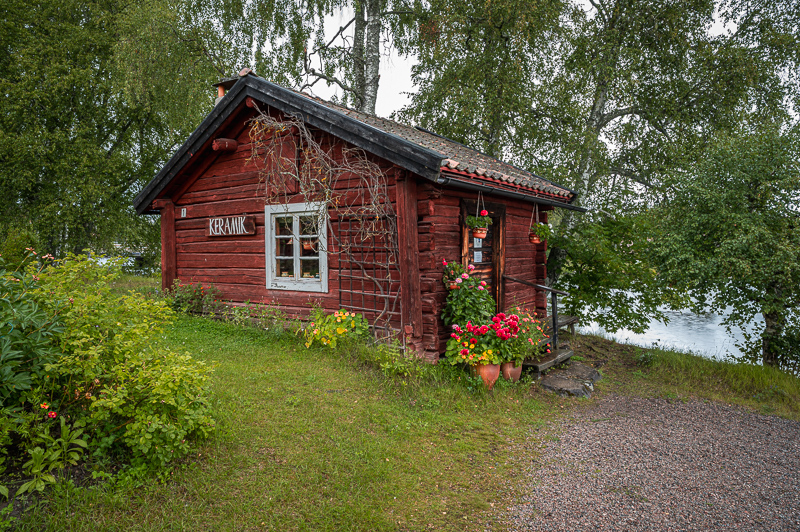

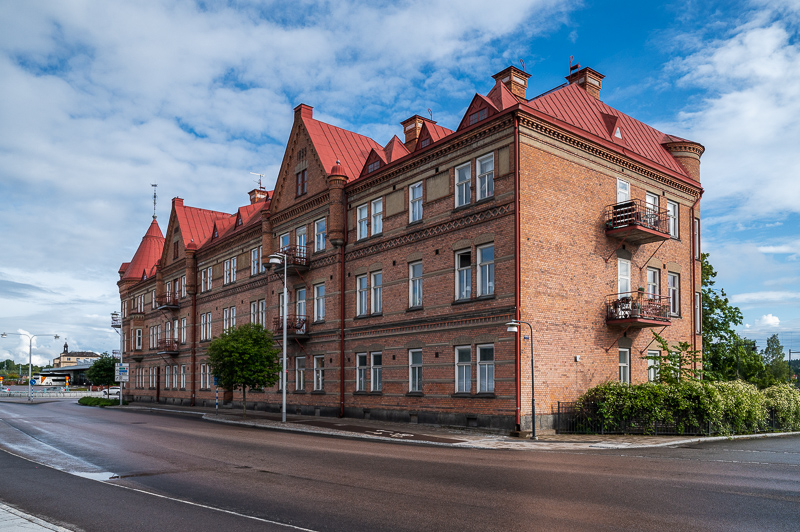


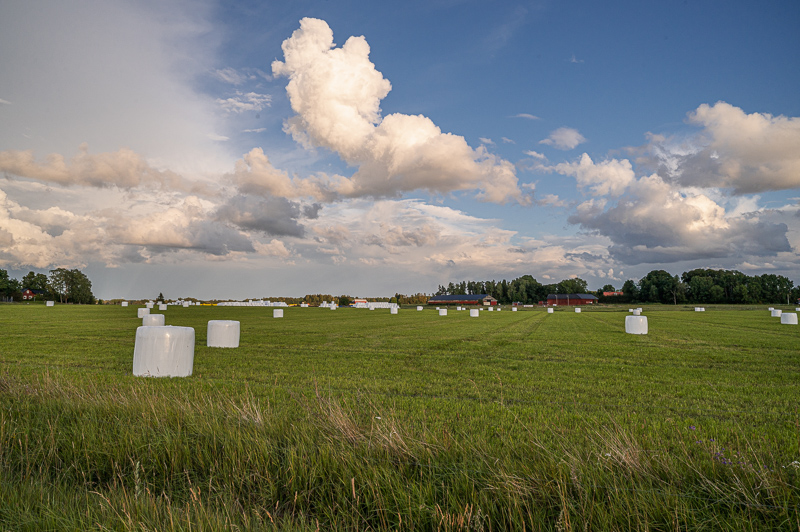
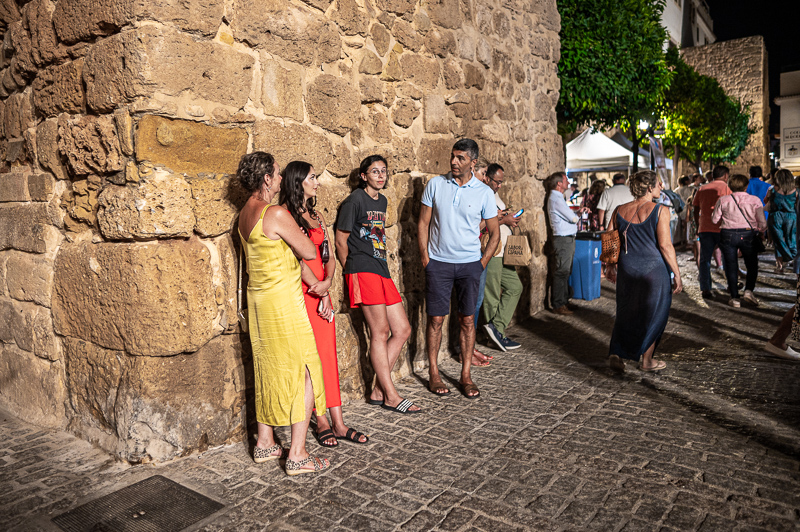
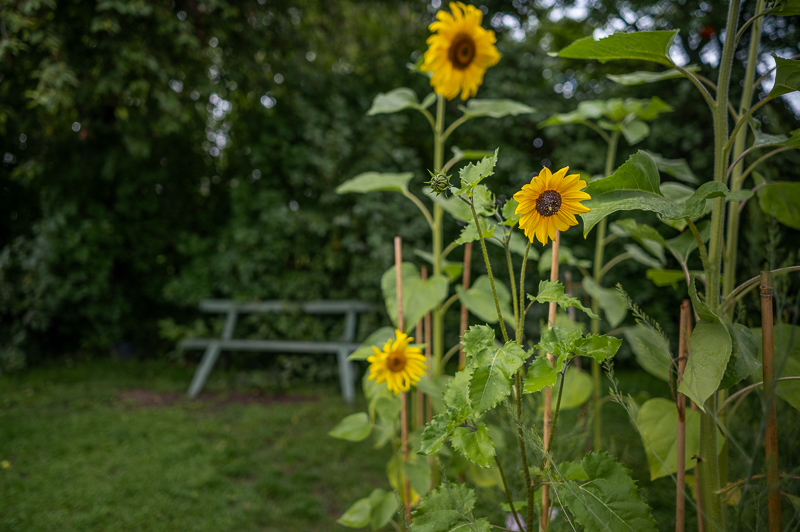
Most of the sample images in this review and many more can be found in higher resolution here.
Further Reading
- Review: Nikon Nikkor Z 24mm F/1.8 S
- Review: Samyang AF 24mm 1.8 Fe
- Review: Sony FE 24mm 1.4 GM
- Review: Samyang AF 24mm F/2.8 FE – Small Lens, Big Compromise
- Review: Tamron 24mm F/2.8 DI III OSD M1:2
Support Us
Did you find this article useful or just liked reading it? Treat us to a coffee!
![]()

(Donations via Paypal)
This site contains affiliate links for which I may receive a small commission if you purchase via the links at no additional cost to you. This helps support the creation of future content.
Martin
Latest posts by Martin (see all)
- Review/Comparison: Nikon NIKKOR Z 35mm f/1.4 (vs. 35/1.8 S) - February 8, 2026
- REVIEW: TTArtisan 14mm f/2.8 - February 1, 2026
- REVIEW: Meike 85mm f/1.4 FF STM - January 18, 2026











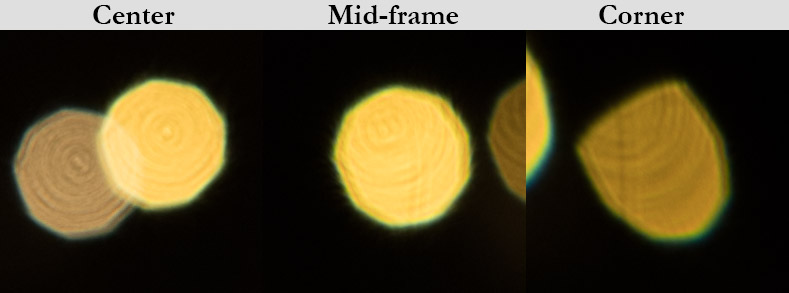

Hi, I would like an article about what you can do in the post processing to get rid of an old lens weakness.
Hi,
I’m not sure what kind of weaknesses you mean, but in general you can not get rid of any weaknesses of any lens, old or new. If they are there, then they are there.
What you can do, is to learn the weaknesses and by knowing them, try to avoid situations that show them more obvious and/or try to reduce the effect of those weaknesses in post.
Solid review, sadly for a camera mount I neither own nor want
Luckily for you the lens is available for several other mounts as well.
Thanks for the info. Might be worth mentioning somewhere in the review, which other mounts the lens is available for. At least a mention of E-Mount might ensure more people actually read the article
I added the info about Sony FE mount to the article. Thanks.
Thanks Martin
Thanks for the review! I enjoyed the pictures too. The bokeh is a little disappointing but the images otherwise have a surprisingly high level of microcontrast and also really excellent color saturation!
Thank you. Yes, the real disappointment is the bokeh really, and to some extent, the mid-frame sharpness, otherwise, a competent lens actually. As you wrote, it is very versatile and can deliver excellent results, espcially stopped down and for landscapes.
Thanks for the review. I notice strong post processing (fill lighting) applied to the sample images. One criteria I use to judge if a lens is desirable color rendition and contrast, both of which are negatively affected when applying strong fill lighting. I suspect many other people would also prefer to see less editing in the sample images for lens reviews, in this way visual image comparison between lenses is less affected by the photographer’s editing preferences.
Thanks for the feedback but I don’t think I have applied any strong post processing. No color alteration at all, except the white balance (and in landscapes with large green areas, reducing the green saturation a little to avoid the look of boosted colors). Reg fill light, in some but not all cases, I just clicked on “auto” in LR’s tone adjustments and then reduced the fill light a little and reduced the amount of applied black a little also. Maybe it should have been reduced more for your liking. In other cases I’ve just reduced highlights and manually added a little fill light.
For being able to see the true colors, it wouldn’t be correct to judge it from sample images, as you never know the light/color conditions of the scene and its surroundings, which can affect the scene’s colors. You don’t know the true colors of whatever you see in the image either, unless you have it by you at the same time as you look at the image. The best way would be to shoot a standard color chart in a controlled neutral and even light, e.g. diffused flash with no other lights in the room for all lenses.
I don’t think it would be fair either to post the raw files as they come out of the camera, after all, the sample images should also show what kind of results you can get with that lens. But I actually post that kind of completely unedited images in all reviews too. All chart images under all the sharpness tests, all infinity test shots, and all shots under focus shift test section are completely unedited. They were shot with the camera’s standard/neutral profile and converted from raw to jpeg without the slightest alteration.
All that said, I’ll try to be even more cautious in the future when editing sample images.
Thanks again.
Martin
On Sony A7 caméras it is possible to change from MF to AF and vise versa with only a button clic…
Must be the case on Nikon Z too I suppose?
The Nikon DSLR bodies all have such a button, but the Nikon Z cameras don’t have it.